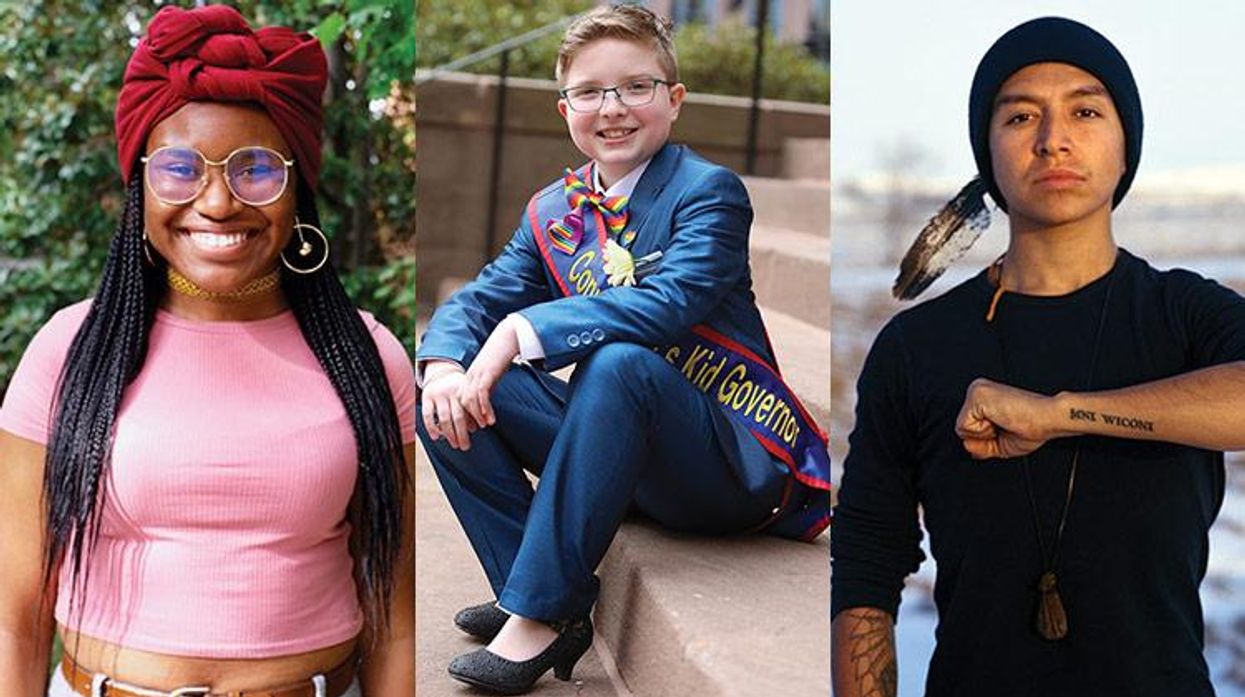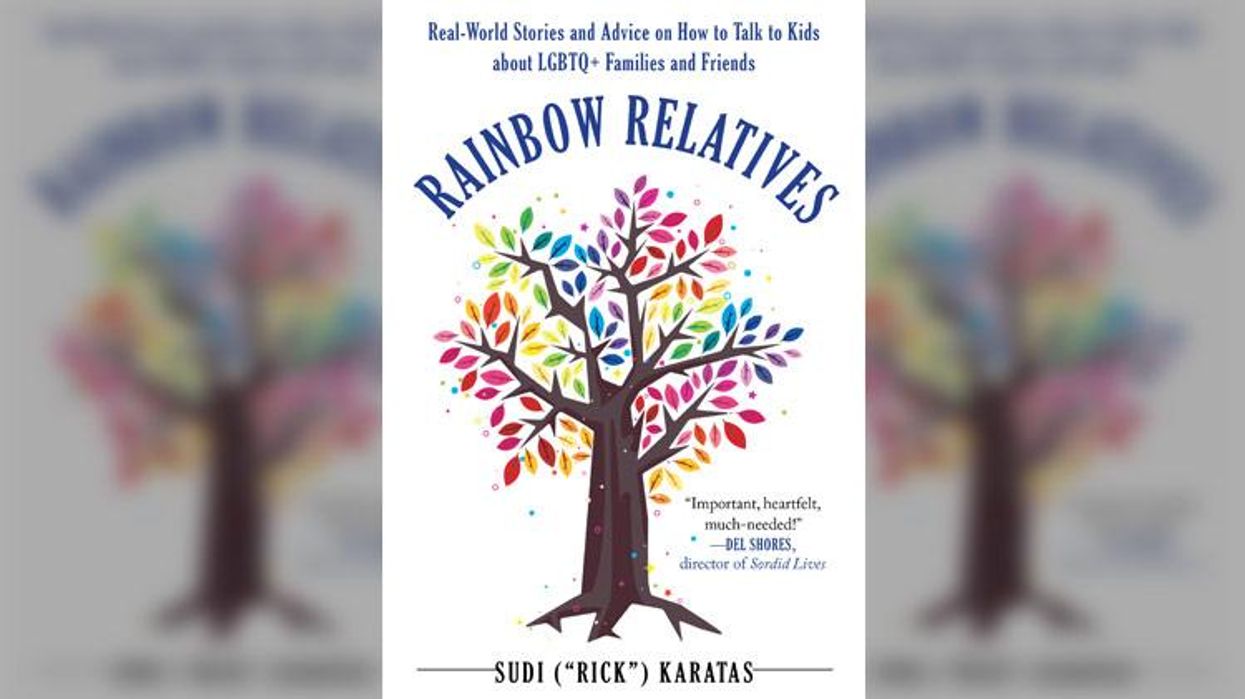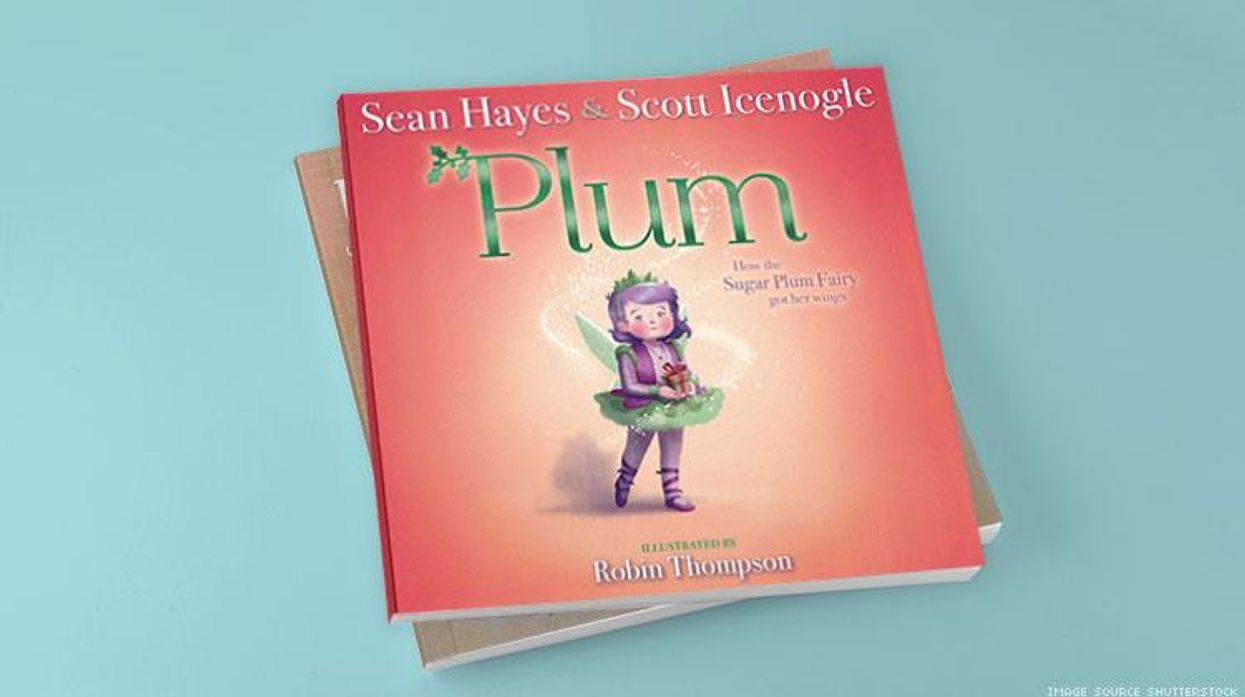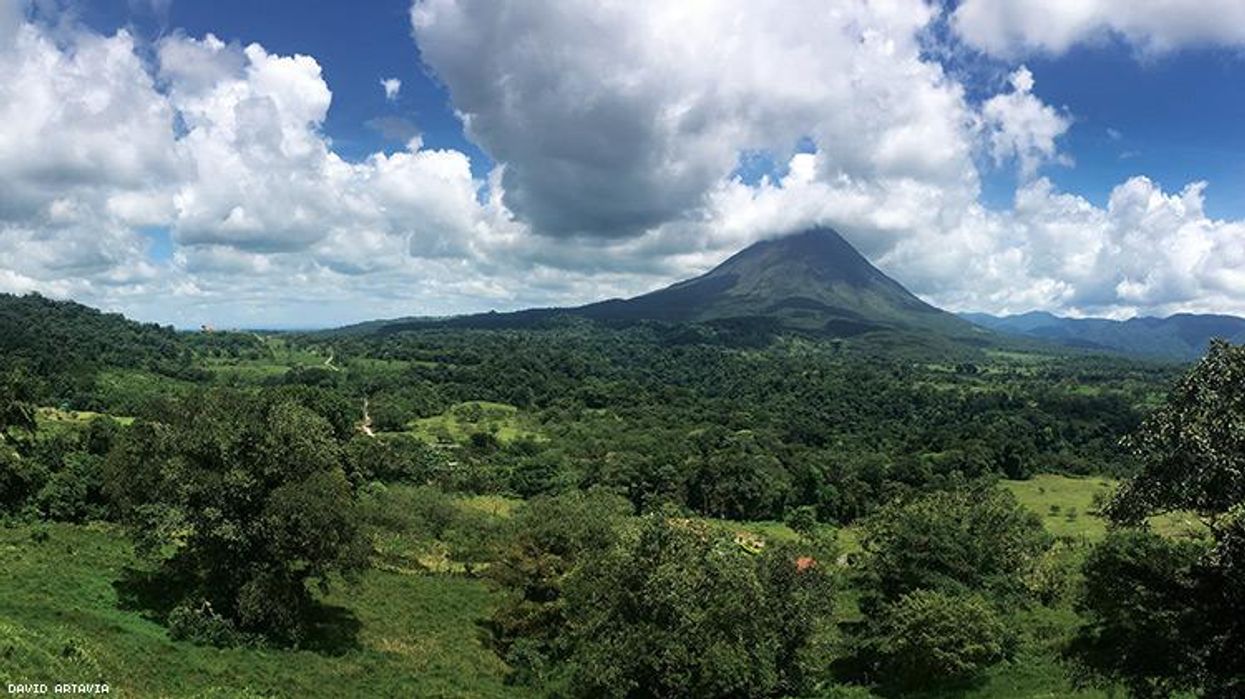When The Boys in the Band opened off-Broadway in 1968, being gay or bisexual was viewed as a mental illness. A year before the Stonewall riots, an event that would jump-start the fight for LGBT rights, many queer men and women were forced to hide in the shadows. Mart Crowley's play premiered against this backdrop, planting seeds in the minds of American culture and indirectly starting a revolution of thought.
Now the play has returned to Broadway for its 50th anniversary, where it will open May 31. One of its stars, Tuc Watkins, plays a soon-to-be-divorced bisexual father named Hank who lives with his boyfriend, Larry (Andrew Rannells).
The former soap opera star, who has had bit roles on shows including Parks and Recreation and Desperate Housewives, like his character is also a father. As the oldest member of the company, Watkins says he's seen firsthand the progress we've made since the play premiered. And he uses this wisdom to enrich an evolved audience in 2018, which isn't always going to be easy.
The Boys in the Band is especially unique given that it's an all-male queer cast. How has it been working together?
It's a real treat. Jim Parsons sort of sets the tone and he's such a kind, funny, generous guy that everyone sort of falls in line under him and everyone in turn is kind, generous, and funny and supportive of one another. It's a really great environment to experiment and try things out and work together.
Do you remember the first time you read or saw the play?
I remember seeing this play years and years ago and it didn't have that much of an impact on me. When we started reading it now and we started rehearsing it, I think when you put people like Jim in a role where he's really funny but he also turns really dark, he's a great ambassador to see how the play is wickedly funny, but it's also really emotionally raw. I think plays like that are sort of cast contingent, and to have ... the people they've populated this play with really make the message pop.
The interpersonal relationships between gay and bisexual men are evident in the play. Do you think our relationships have changed since the play opened in 1968?
That's a really good point because I think majorities think that minorities all get along with each other just by virtue of the fact they're all in the same minority. What is interesting about this play is it was the first time audiences had seen gay men's lives onstage realistically, and I think that's what helped spark a revolution.
Those lives were put up there unapologetically, without judgments. There's a lot of support, yet infighting, among the characters. I feel like [we're in] a time capsule of the gay experience from when this play was written [and] where we are now as it's being produced on its 50th anniversary.
I've taken exception with my own community and the representation of gay people in the TV and film industry, the theatrical industry. I've taken on opinions about writers and directors and some of my fellow actors about what it means to portray gay people.
I had a problem with what I thought to be stereotypes, particularly over at Modern Family. When I think about it, that was a number of years ago, but the problem I had with seeing gay stereotypes in entertainment was just that. It's my problem, because I think what I said was wrong, and it's not your problem, it's not Modern Family's problem. It's my own problem.
[Editor's note: In 2014, Watkins wrote a Facebook post calling Modern Family the gay equivalent of blackface for displaying stereotypes of gay people. Its out star, Jesse Tyler Ferguson, responded, "We can't be expected to represent every gay person. We can only represent these two people." Watkins later apologized for his comments.]
The culture that I grew up in in the '70s and the '80s and the industry that I chose to start working in in the '90s reinforced in my head that being gay was not OK. I still have feelings about what it means for me to be gay, but my experience about being vocal about my disappointment with what I perceived to be gay stereotypes, that experience has made me want to do better. It makes me want to live better. I plan to make things better by making people feel safe being themselves around me because I, in turn, want to feel safe being myself out there in the world.
Do you think young queer men need to learn a bit more about history?
I think we, collectively and individually, need to know our history, whether it's the history of our country and our democracy or the history of our individual families. If you are a member of a minority, I think it's important to where you are now because of what has happened in the past. I think the youth of America, from what was sparked at the school shooting in Florida, [craves] authenticity. I feel like when we lived under this administration that appears to be very inauthentic, we're starving for [authenticity]. Young people are actually very in tune with their history. I hope that The Boys in the Band can be a piece of art that illustrates history in an entertaining and educational way.
That's the power of theater. Do you think this play is timely in a post-Trump era?
Well, by way of example. I think people think, Well, it was written in 1968. Why should I see it today? How is it relevant? There's self-loathing in the play. They're hiding. Look how far we've come. Why do we want to go back and watch that? I understand that. I feel like as a gay guy I want to be moving forward and out and proud, but we do have to look over our shoulders and understand why we are allowed to do what we're doing because of the people that came out behind us.
I read this article that was printed in The New York Times in 1963 and it was about how homosexuality was taking over Manhattan, and what are we going to do about it? [The reporter] was conjecturing how many gay people lived in the city, and they said we have no idea. It might be 100,000. It might be 600,000. We have no idea. There's no way to count them. Then you fast-forward 55 years ... there's a proposal before Congress to add the LGBT community to the census in 2020, and then that gets removed. So it's important to count us to ensure our civil liberties, our protections, and our services. We want to be counted. We need to be counted. Yet here we are, 55 years later, when they're complaining in 1963 we have no way to count them. In 2018, it was on the proposal and now it's been removed. So it is very timely. Those kinds of events are still occurring.
The courage the original cast members had to tell this story proudly onstage in 1968 was incredible. Do you feel a weight on your shoulders, like you're carrying on the torch for them?
Back in 1968, being gay was still considered a mental illness. Gay people were harassed and even arrested just for being gay. When the nine of us sit around and talk about this, I think we feel a real sense of empowerment. In fact, it feels like we've been handed this mantle and we are just the custodians of it right now in 2018 and hope to pass that on. I was a Boy Scout, and you always leave something better than the way you found it, so I hope to do the same thing in my time publicly and privately.
Where do you think we are now as far as the progress we're making for entertainment and LGBT visibility?
I think more and more we're all learning from truly great people, whether they be people in the LGBT community or in the #MeToo movement or the youth of America, who are saying enough with the guns. I think it empowers all of us to be a little bit stronger and to be a little more bold. There's been so much fear historically about being ourselves that we just didn't feel like it was OK. I didn't feel like it was OK to be myself ... I think culturally we are now seeing that it is OK, finally.
Your character, Hank, is Larry's live-in boyfriend who has been married to a woman whom he is separated from.
In the play, [Hank] says, "I couldn't lie to myself anymore." That's a process. That's not something that happens overnight. It's a pretty uncomfortable shirt to wear and over time we get better at being ourselves.
It's always a journey of self-discovery. Can you relate to some of Hank's struggle?
What I relate to is, you know, I have a couple of kids, and fortunately I always thought I wanted to be a dad, but I never knew how I was going to be a dad because I knew I was gay and I wasn't going to get into a relationship that was [inauthentic]. As I got older and I learned there's adoption, there's fostering, there's surrogacy, there became avenues for gay people to have kids of your own, so I engaged in the surrogacy process as a single parent and now I have twins.
I imagine that [Hank] was vilified in the late '60s for choosing to leave his family and go live what he knew to be the truth, but that takes a lot of courage for someone to do that. As a father, I sympathize with someone who has to come to terms with who they truly are and try to live that life authentically yet still feel the responsibility for other people he loves.
You always lived an out lifestyle, but I'm sure it must have felt freeing to come out publicly, which you did in 2013.
I did avoid speaking to the press about [being gay] because I thought it would affect my career. I thought I wouldn't get to play parts. But like Hank says in the play, I just got to a point where it just didn't matter. I didn't want to continue doing this dance, especially after becoming a dad. It just didn't feel ... it felt really wrong. You don't really care where it takes you. If you know that you're finally embracing the truth and telling the truth, then whatever is on the other side of that truth is going to be OK.
In this day and age with social media, it's becoming harder to keep a secret.
Yes, and the best part is it's so important for us to not keep secrets. I think the meaning of life is we're all here to make each other feel safe, and part of making each other feel safe is looking each other in the eye and telling the truth. I want people to feel like they can look me in the eye and tell the truth and know that they're safe, and I want to feel the same way.
I always find whenever someone is vulnerable to me, I embrace them. The times where it's been really scary to be honest and truthful about who I am, I have for the most part only been supported and embraced in return, and we just need to remember that with each other.















Charlie Kirk DID say stoning gay people was the 'perfect law' — and these other heinous quotes
These are some of his worst comments about LGBTQ+ people made by Charlie Kirk.